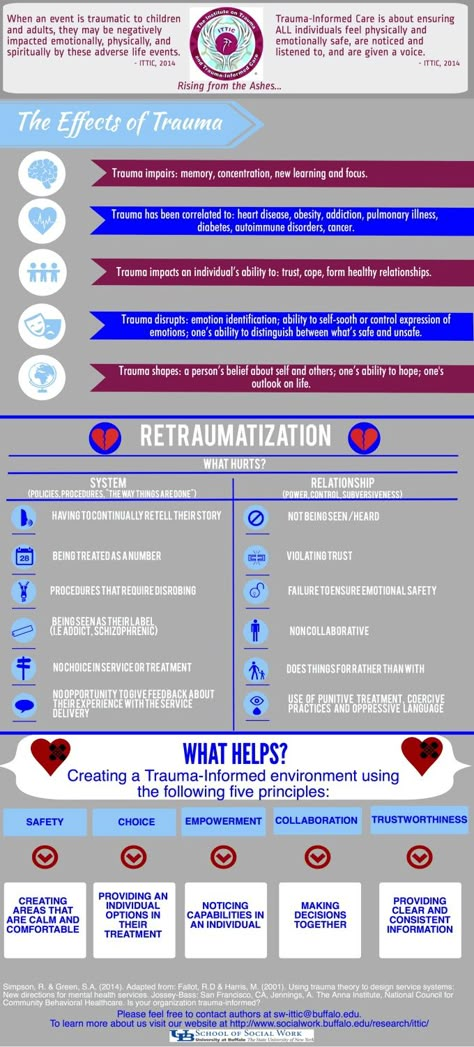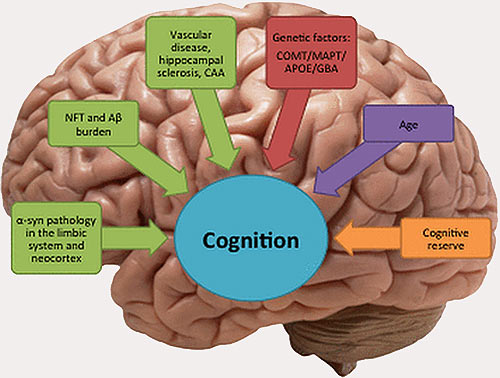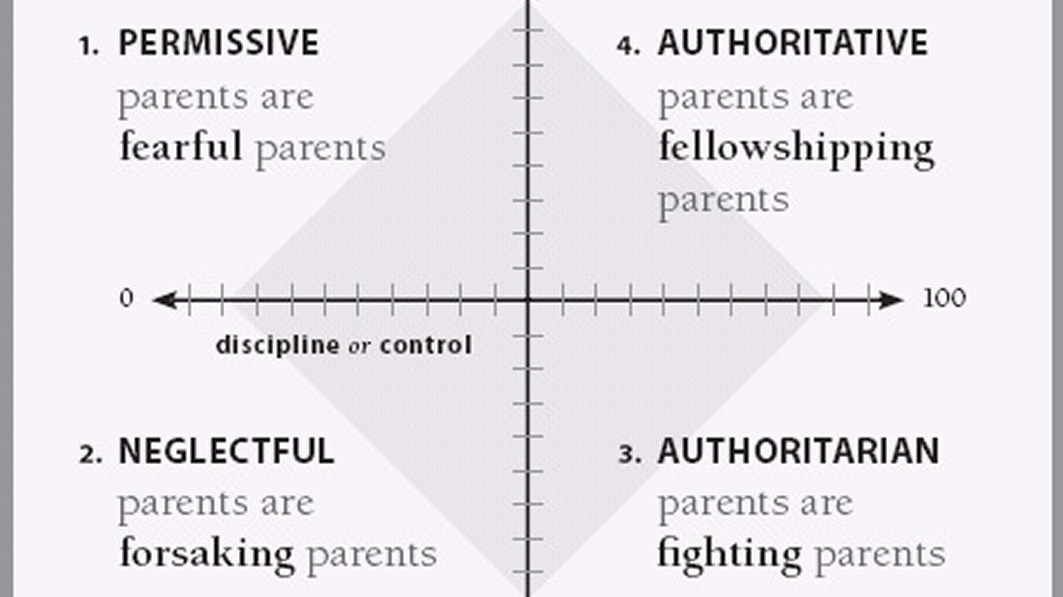Therapy for compulsive lying
When Does Compulsive Lying Become a Pathological Disorder?
Most of you may have read William Shakespeare’s quote, “no legacy is so rich as honesty”, yet we sometimes choose to lie. While we all lie occasionally, there is a difference between an occasional liar and a pathological liar. When a person lies effortlessly and those lies come naturally to them instead of the truth, it is often recognized as pathological lying. If not treated, pathological lying can result in a mental health condition known as Compulsive Lying Disorder.
Understanding Pathological Liars and Compulsive Lying Disorder
There is no psychiatric definition of a pathological liar. Otherwise known as mythomania or
pseudologia fantastica, pathological lying is a mental disorder in which someone lies habitually or compulsively. However, such a condition can be a symptom of depression, anxiety, psychopathy, bipolar disorder, obsessive-compulsive disorder or narcissistic personality disorder.
Pathological lying is common in both men and women. Therefore the consensus is that, in most cases, lying begins in childhood or adolescence and continues throughout a person’s life. Although lying is developmentally normal in children wherein they may lie to escape a situation or lie to get something, the problem begins when the lying becomes persistent. It may even become detrimental to everyday life. At this stage, the nature of lying becomes pathological.
If a person lies out of habit and cannot control this behaviour, they are considered pathological liars. It ends up becoming their way of living. For them, lying seems more comfortable and convenient than telling the truth. Such people usually come from an emotionally unstable environment, have difficulty coping with feelings of anxiety & shame, or have low self-esteem.
What is a Pathological Liar?
A pathological liar is someone who lies all the time compulsively with or without any apparent purpose or personal gain. In many cases, pathological liars cannot function without telling lies. They continue to lie even at the cost of damaging their own reputation. If exposed, a pathological liar may have difficulty admitting the truth. They look at a situation from their perspective and disregard the consequences entirely. This condition can affect their relationship with everyone close to them such as their partners, parents, children, employees, bosses or friends.
In many cases, pathological liars cannot function without telling lies. They continue to lie even at the cost of damaging their own reputation. If exposed, a pathological liar may have difficulty admitting the truth. They look at a situation from their perspective and disregard the consequences entirely. This condition can affect their relationship with everyone close to them such as their partners, parents, children, employees, bosses or friends.
A study revealed that pathological liars tend to have increased white matter in the brain when compared with non-pathological liars. The verbal skills and intelligence of pathological liars were mostly similar or at times better as compared to non-pathological liars. Scientists concluded that the increased white matter in the brain’s pre-frontal cortex was responsible for pathological lying.
Difference Between Pathological Liar and Compulsive Liar
A pathological liar tends to be manipulative or sly and hardly cares for other people’s feelings. They believe they will achieve something when they lie and defend their act when caught. A compulsive liar, on the other hand, cannot control his lying behaviour and lies out of habit.
They believe they will achieve something when they lie and defend their act when caught. A compulsive liar, on the other hand, cannot control his lying behaviour and lies out of habit.
At no point will pathological liars admit that they are lying. Additionally, they lie with great conviction, start to believe their lies, and sometimes become delusional. Pathological lying is a trait usually found in people with personality disorders. That said, it is not required for a pathological liar to have other mental health issues to be diagnosed as a pathological liar.
Compulsive liars may not intend to lie, but end up lying out of habit. Low self-esteem is the most common trait seen in all compulsive liars. Although compulsive lying is relatively harmless, it can be frustrating for people living with this disorder.
Nature of Lies Told by Pathological Liars
One can see apparent differences between white lies and those told by pathological liars. White lies are harmless, without malice, and are typically told to avoid conflict, hurt or trouble people. Pathological lies, on the other hand, are lies that are told for no good reason. However pathological liars find it difficult, to tell the truth, so they tell lies and do not feel guilty or feel that they are at risk of being caught in a lie. Some people suffer from a compulsion to lie and do so often. They often don’t realize that they may be hurting the people around them.
White lies are harmless, without malice, and are typically told to avoid conflict, hurt or trouble people. Pathological lies, on the other hand, are lies that are told for no good reason. However pathological liars find it difficult, to tell the truth, so they tell lies and do not feel guilty or feel that they are at risk of being caught in a lie. Some people suffer from a compulsion to lie and do so often. They often don’t realize that they may be hurting the people around them.
There are many characteristics of pathological liars which can be found in their everyday conversations. They are pathological liars not just because they lie, but because more often than not, they believe in their lies and crave attention and their low self-worth causes them to concoct stories that make them feel better.
They Play the Hero or Victim CardUsually, pathological liars rely on being the heroes or the victims of any story.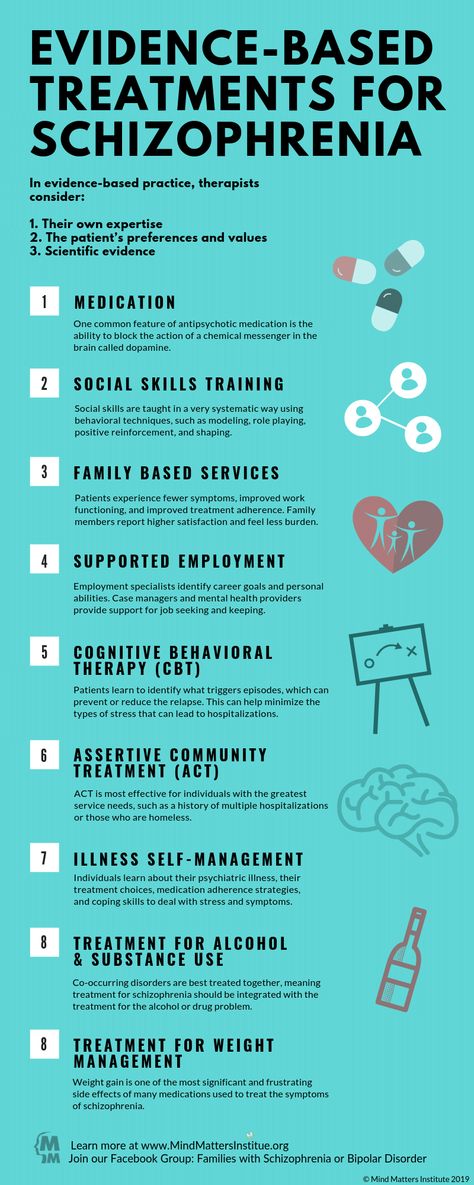 They are hardly ever seen or heard to be bystanders in any plot that they lie about and look for some reaction or wish to draw attention to themselves in the story they build.
They are hardly ever seen or heard to be bystanders in any plot that they lie about and look for some reaction or wish to draw attention to themselves in the story they build.
Most pathological liars tend to dramatize everything they narrate. They exhibit no causal emotions. Almost everything is derived from extreme dramatic untruths and how they responded to them. They are great storytellers and love the attention their stories bring. When lying, they tend to keep their stories believable to enforce their lie.
Diagnosis of Pathological Lying
Like most mental health conditions, there is no easy diagnosis of pathological lying. However, doctors and therapists can identify the condition. There are many interviews and tests medical professionals can conduct to diagnose a pathological liar.
To make their lies believable, pathological liars will often say believable things like they were diagnosed with a disease or they had a death in the family. A good therapist or psychologist will be able to separate the facts from the lies and treat the patient accordingly. Also, they will know that the symptoms will be different in different patients.
A good therapist or psychologist will be able to separate the facts from the lies and treat the patient accordingly. Also, they will know that the symptoms will be different in different patients.
To diagnose pathological lying, doctors or therapists usually:
1. Talk to their friends and family
2. Sometimes use a polygraph test
3. Understand if the patient believes the lie
When Pathological Lying Becomes Compulsive Lying Disorder
Pathological lying can turn into compulsive lying disorder if left untreated. People with compulsive lying disorder are usually in denial of the condition and will need all the support they can get. As mentioned before, their lies are different from the white lies that people often tell to get out of a situation. If pathological lying becomes a compulsive lying disorder, people start to create falsehoods. When one recognizes the truth, it can become challenging for everyone to cope with the situation.
If pathological lying turns into a disorder, you can do the following to help the patient:
1. Be understanding
2. Remember it is not about you
3. Do not get angry or frustrated
4. Do not take it personally
5. Do not engage in their lies
6. Be supportive
7. Do not judge
8. Call them out on their lies patiently
9. Let them know you care
10. Motivate them to see a counsellor or therapist
In most cases, pathological and compulsive liars do not wish to seek treatment. If they are ordered and directed, these liars might consider treatment. Often, it takes a supportive circle of family and friends along with an understanding therapist to help treat Compulsive Lying Disorder.
There are a lot of things that a medical professional can do to help pathological liars. Given that easy diagnosis is not possible for this condition, therapists will have to explore and study the patient’s history to see if they suffer from any other health conditions. It could also be a condition that there is no influence of any other underlying condition. The following treatment methods are for pathological liars,:
Given that easy diagnosis is not possible for this condition, therapists will have to explore and study the patient’s history to see if they suffer from any other health conditions. It could also be a condition that there is no influence of any other underlying condition. The following treatment methods are for pathological liars,:
There is a kind of stigma, with CBT for compulsive liars. However, a trained therapist providing CBT can do wonders in treating compulsive lying disorder. Cognitive Behavioral Therapy is necessary if the patient is suffering from behavioural issues.
Dialectical Behavioral Therapy (DBT)Dialectical Behavioral Therapy has seen great success in treating compulsive or pathological lying. If the person has a personality disorder, medical professionals believe this form of therapy can help in treating the mental health condition.
MedicationIf the patient has a combination of health issues, there can be a suggestion of medication to help deal with all the conditions which might be the underlying issue of their behaviour, such as anxiety, depression or phobias.
Treating compulsive lying disorder is a team effort. This means that the patient, their friends & family, and the medical professional treating the patient are all stakeholders in the treatment.
Dealing with Compulsive Liars
Many people suffer from mental health disorders. One of the lesser-known conditions is pathological or compulsive lying disorder. Often, people mock those who lie. Some people lie out of fear of facing the negative repercussions of telling the truth. At the same time, others may lie to fulfil their materialistic needs. Some people just find it thrilling to lie. However, it is essential to differentiate between those who choose to lie and those who lie because they suffer from a disorder. Not all who lie are doing it on purpose.
Therapist for Compulsive Lying
If you are someone suffering from a pathological or compulsive lying disorder or know someone who suffers from this mental health condition, you should seek help from a trained psychotherapist. Talk to the people who love & value you, and learn how to deal with stress and anxiety using different methods. It is advisable to seek professional help, as medical professionals can give appropriate treatment with compassion and care.
Talk to the people who love & value you, and learn how to deal with stress and anxiety using different methods. It is advisable to seek professional help, as medical professionals can give appropriate treatment with compassion and care.
What Is Pathological Lying, and Can It Be Treated?
Written by WebMD Editorial Contributors
Medically Reviewed by Dan Brennan, MD on October 25, 2021
In this Article
- What Is Pathological Lying?
- Characteristics of Pathological Lying
- Treatment for Pathological Lying
People sometimes call someone who lies a lot a “pathological liar.” Frequent dishonesty isn’t a good habit, but it doesn’t fit the official definition of pathological lying.
To be labeled as a pathological liar, a person must lie frequently and for no good reason. Pathological liars harm themselves with their behavior, but they keep doing it despite the consequences.
What Is Pathological Lying?
Psychiatrists have recognized pathological lying as a type of behavior for hundreds of years. It’s also called “pseudologia fantastica” or “mythomania.” It isn’t listed as an official diagnosis in the psychiatric guidebook called the DSM-V. But it is a real and troubling condition.
It’s also called “pseudologia fantastica” or “mythomania.” It isn’t listed as an official diagnosis in the psychiatric guidebook called the DSM-V. But it is a real and troubling condition.
Lying is a common behavior in humans. When someone tells a lie, there is often a clear reason for them to do so. Lying is a tool that people use to achieve a goal.
Pathological liars often lie without any reason. Their lies are extensive and elaborate. The urge to lie is compulsive. They often can’t control the impulse to make up stories, even when this causes them harm. They may lose jobs and ruin relationships because of their lying.
It isn’t clear whether pathological liars understand that what they say isn’t true. Some people fully believe in the things they say, even when they are clearly false. Other pathological liars will admit that they have been lying only when their lies are proved false.
Pathological lying usually starts when a person is in their teens. They continue the pattern for years. Their lying might become a problem that affects their relationships, career, and family.
They continue the pattern for years. Their lying might become a problem that affects their relationships, career, and family.
Characteristics of Pathological Lying
Pathological lying is different from the occasional lies most people tell. It’s even different from patterns of dishonesty you might see in someone who’s trying to hide bad habits like infidelity or substance abuse.
Researchers have found that pathological liars tell lies without good reason and without worrying about the consequences. They usually don’t plan to tell the lies. They also make up elaborate stories about themselves. It’s a lifelong behavior, and they can’t control the urge to lie.
Experts look for four main behaviors when trying to figure out if someone is a pathological liar:
Excessive lying.Pathological liars lie more than most people. They may make up stories that sound real enough that other people believe them. They then have to add more lies to back up the original lies. The lies they tell can also be outlandish and easily disproved. They might falsely claim to have received an award or say that still-living family members died.
The lies they tell can also be outlandish and easily disproved. They might falsely claim to have received an award or say that still-living family members died.
Lying without good reason. The lies that pathological liars tell differ from lies most people tell because there isn’t a reason for them. Most people will tell small lies to avoid unpleasant consequences, like saying you were late because of traffic instead of admitting that you overslept. Pathological liars don’t have a clear motive. They tell stories that don’t benefit them and might actually hurt them when the truth comes out.
Long-term problem. Pathological lying happens for years. It begins when a person is young and continues indefinitely and in all areas of life. Their dishonesty might be the thing people remember most about them.
No other mental illness. A pathological liar might have other mental conditions such as depression or anxiety. But that isn’t the cause of their lying. Pathological lying is a condition, not a symptom of something else.
But that isn’t the cause of their lying. Pathological lying is a condition, not a symptom of something else.
Treatment for Pathological Lying
Treating pathological lying is complicated. No medication will fix the issue. The best option is psychotherapy. But even therapy can pose challenges, because pathological liars aren’t in control of their lying. They may start telling lies to the therapist instead of addressing the problem directly.
Treatment will depend on what the person needs and what they respond to during therapy sessions. Finding a qualified, experienced therapist who can work with someone over the long term is the key to managing the condition.
If you or someone you know has symptoms of pathological lying, it’s important to get help. A therapist can make a treatment plan to control pathological lying. With time and work, a pathological liar can minimize the effects that their behavior has on themselves and their loved ones.
Pathological liars: what makes them lie?
145,713
Man among menKnow thyselfPractices how to
- Photo
- Shutterstock/Fotodom.ru
Will you swear that you will always tell the truth, the whole truth and nothing but the truth? Hardly, like 99.99% of the people in the world. Anyone who claims that he has never lied is clearly disingenuous. However, most can honestly say that they are at least trying not to cheat.
But there is a special category of people for whom lying is a way of life. It is easier for pathological and compulsive liars to make up three boxes than to tell the truth. Why do they do it and how to crack them? nine0003
Pseudology fantasy
Pathological lie, mythomania or Pseudologia Fantastica, causes a lot of controversy among psychologists and psychiatrists. Some believe that this is only a symptom of a more complex disorder (for example, borderline personality disorder, sociopathy or narcissism), others are convinced that this is a deviation in itself.
It has been suggested that this is a special form of addiction: a person cheats under the influence of a psychological impulse, like an alcoholic, a smoker or a gambler, in response to specific triggers. However, the fact remains that some people lie all the time. nine0003
However, the fact remains that some people lie all the time. nine0003
Their deceit can be called chronic, since it is observed throughout life, or habitual in the sense that it becomes second nature
People of this type always act under the influence of internal motivation, and not external factors. In other words, they lie not so much to avoid the unpleasant consequences of the truth, but for the sake of "sport interest".
Pathological liars are not so easy to recognize, especially on a superficial acquaintance or at the beginning of a relationship. They may seem interesting, intelligent, sociable, charming. Their true face is revealed only with time, and then communication becomes strained. Lying endlessly can destroy friendships, loves, work relationships, and even families. nine0003
Pathological and compulsive lying: what is the difference?
Two types of lies have their own characteristics. How do you know who you are dealing with?
How do you know who you are dealing with?
Pathological liars:
-
Lie down with a specific purpose,
-
Invent fantastic stories that can endlessly complement with new details,
-
Believe everything that the outfits,
-
are indignant when they are suspected in deceit,
-
lie to strengthen their authority,
-
do not blush or feel embarrassed.
Compulsive liars:
-
seriously believe that they are obliged to lie: either because they do not know how to do otherwise, or if it is inconvenient to tell the truth,
-
often lie for no clear reason and without any benefit, 9003
-
make up fables on the go without really thinking about credibility,
-
prefer "holy" lies, which they think others would like to hear,
-
tend to feel someone else's distrust,
-
when they are caught, they confess that they are lying, but continue to fool others.

These differences are very conditional, because deceivers easily change masks.
- Photo
- Shutterstock/Fotodom.ru
What caused this behavior?
There is no clear scientific explanation for the tendency to communicate deliberately false information. This behavior is due to many genetic and environmental factors, but this set is unique for everyone. Here are the most common reasons. nine0003
1. Personality disorders
As mentioned above, lying at every turn can be a symptom of a mental disorder.
2. Features of the brain
A number of studies point to structural abnormalities in the brains of pathological liars. One such study revealed increased white matter volume in three regions of the prefrontal cortex.
Other authors believe that a persistent tendency to lie is formed as the restraining emotional reaction of the amygdala weakens.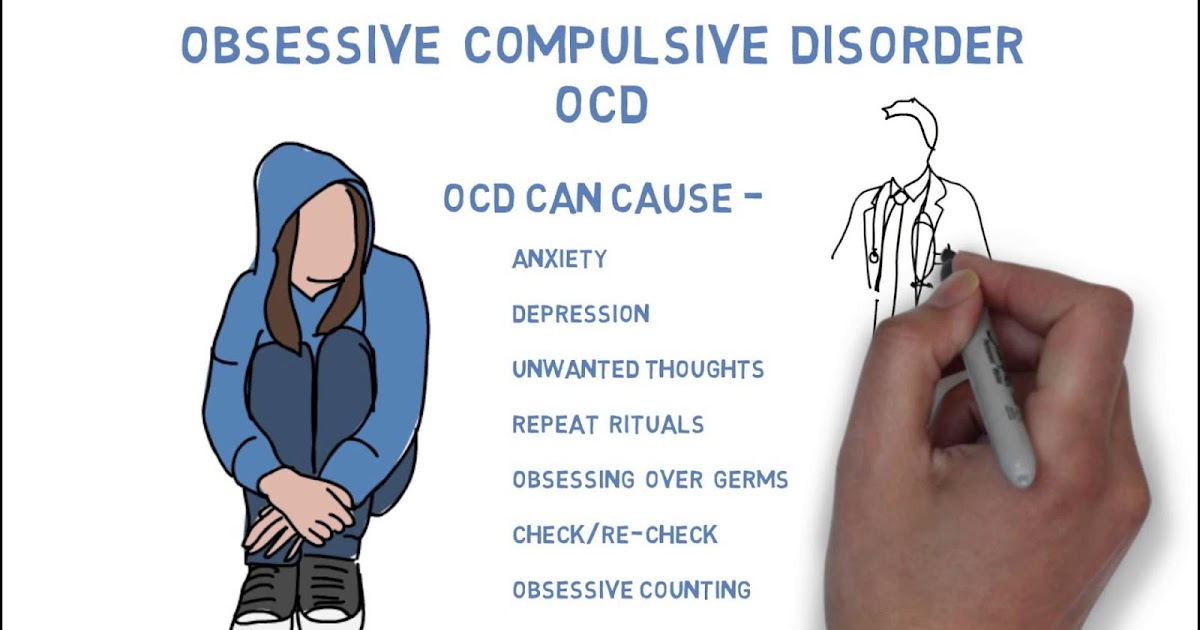 Earlier studies found that 40% of pathological liars had damage to the central nervous system caused by epilepsy, head trauma, or dangerous infections. nine0003
Earlier studies found that 40% of pathological liars had damage to the central nervous system caused by epilepsy, head trauma, or dangerous infections. nine0003
3. The costs of education
In childhood, we all learn what is good and what is bad. At an early age, a person may lie out of fear of punishment or for profit, and later this becomes an unconditional attitude.
4. Chemical addiction
Drug addicts and alcoholics often use cunning to hide their problem and at the same time swindle money: addictions “turn off” conscience.
5. Other psychological problems
A person who lies frequently may suffer from depression, anxiety, or obsessive-compulsive disorder. Such behavior may be associated with fear, guilt or shame, unwillingness to admit their condition. It is important to understand that not every person with such a diagnosis is a pathological deceiver! nine0003
- Photo
- Shutterstock/Fotodom.ru
Signs of pathological and compulsive lying
If you suspect that you are regularly fooled, pay attention to the characteristic signs of lying.
1. The stories of the liars are absolutely unbelievable
If you find yourself shaking your head often, refusing to believe the fables, it seems that you have come across just such a person. Someone tells how they dined with Tom Cruise or set a world record for eating sausages? You are not mistaken. nine0003
2. There is a desire to get attention
If someone lies to gain interest, and goes out of his way to prove his own worth, you are a pathological liar. They practice two ways to attract attention: Instead of admitting their mistake or honestly saying that they are in trouble, such people are talking nonsense, just to look sinless.
Make yourself a victim. nine0018 To enlist the sympathy and support of others, they complain about imaginary misfortunes.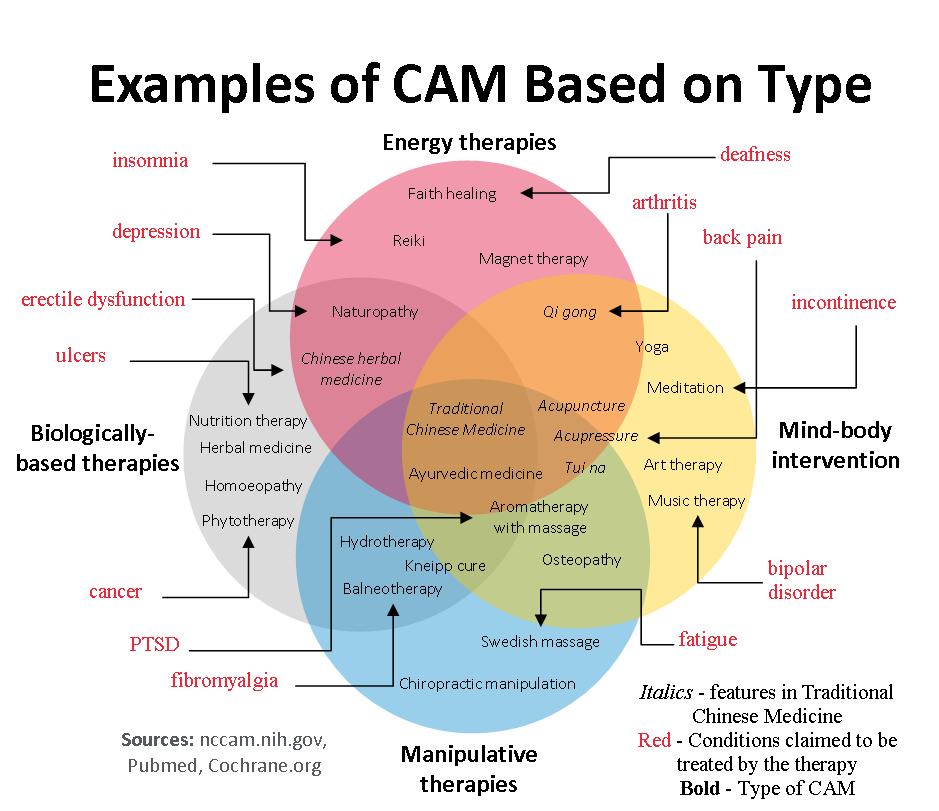 Illnesses, death of loved ones, someone's cruelty and other catastrophes in which they allegedly suffered.
Illnesses, death of loved ones, someone's cruelty and other catastrophes in which they allegedly suffered.
3. Liars have low self-esteem
By itself, it does not indicate pathological or compulsive lying, but in combination with other signs, it completes the portrait of a shameless deceiver. Usually low self-esteem is found in compulsive liars: it hides anxiety and insecurity. nine0003
4. They should have the last word
Arguing with a pathological liar is like banging your head against a wall. He will give the most ridiculous arguments until you get tired of arguing, just to get out of the fight as a winner. Compulsive liars are easier: they are embarrassed when they are exposed and do not insist on their own.
5. They are extremely resourceful
They manage to invent plausible versions for all occasions with lightning speed, create suitable lies literally out of thin air and present them in a convincing form. nine0003
6.
If liars feel that they are close to failure, they immediately back up and change the meaning of what was said. But it is useless to catch them at their word: they will object and say that you misheard or misunderstood.
7. Their life is chaotic and full of tragedies
They get out as best they can, trying to seem honest, but sooner or later people realize that something is wrong here. Relationships crumble, another job is lost, friends turn away, but the pathological liar is still rushing about in search of simpletons who can be hung noodles on their ears. nine0003
8. They do not know how to keep secrets and love to gossip
They are not familiar with the concept of decency: they enthusiastically discuss the details of someone else's life, including intimate ones. Nothing is sacred to them.
- Photo
- Shutterstock/Fotodom.ru
How to behave with them
It would seem that there is nowhere clearer - to stop communicating and delete from life. But it's not always easy, and it's not always necessary. Not all deceivers are notorious crooks. nine0003
If you are convinced that you have encountered a narcissist or a sociopath, then there is no question: stay away from him, and do not let your conscience torment you. But if someone close to you has serious psychological problems or addiction, you probably shouldn’t say goodbye to them. What to do?
1. To believe… if necessary
To look for a lie in every word is more expensive for yourself. Yes, a person often lies, but still able to be honest. He may be exaggerating, but he's basically telling the truth. At the very least, try to figure out when to trust him and when not. nine0003
Do you remember slippery topics, during the discussion of which you often caught your interlocutor in a lie? Or periods of exacerbation, when the propensity to lie became too obvious?
A healthy skepticism doesn't hurt, but if you're not completely sure that everything you've said is a complete lie, why not assume that you're being told the truth? Of course, this does not apply to important issues: here you need to check everything.
A modicum of trust is needed: when a person knows that he will be accused of deceit anyway, why should he be honest? Those who are trusted are more likely to reveal the truth, especially if the lie is associated with guilt or shame. nine0003
2. Understand why they lie
We feel bitter when we are deceived, and this is a natural emotional reaction. Critical thinking can help you deal with it. Think: why does a person lie? What drives them? What is the reason?
If you can figure out the motives, a little bit of sympathy will surely appear. Your emotions may not subside immediately, but sooner or later you will calm down and be able to take a sober look at the situation.
3. Accept it as a fact: lies will be repeated more than once
Pathological or compulsive liars do not always control their speech. Therefore, it is wiser to admit that they are like that and you have to live with it somehow. This does not mean forcing yourself to believe tall tales or accepting their behavior as the norm. The main thing is to realize that not every lie is said with malicious intent.
The main thing is to realize that not every lie is said with malicious intent.
They can't help but lie. At least not now, given certain circumstances. Of course, no one forbids fighting this, but you yourself will not change anything. Try to look at it philosophically and not take it to heart. nine0003
4. Convince them to ask for help
If the interlocutor has developed a tendency to lie relatively recently, you can guess what the matter is (depression, addiction in the initial stage, childhood psychotrauma) and the person is dear to you, try to persuade him to see a psychotherapist.
People who constantly lie are not easy. And yet, do not rush to write them down as scoundrels or malicious manipulators. There are many causes for pathological or compulsive lying, and although this habit harms both those who are lied to and those who lie, it is treatable. nine0003
Daniel Levitin "Guide to Lies"
This book will help you recognize lies and process any information critically. From it you will learn how to critically evaluate news, advertising, reports; it is easy to be persuasive by telling stories that subtly deviate from the facts - and how to recognize such stories; work with graphs and recognize data manipulation using visual means; determine who is behind the expertise, words, website, information. nine0003
From it you will learn how to critically evaluate news, advertising, reports; it is easy to be persuasive by telling stories that subtly deviate from the facts - and how to recognize such stories; work with graphs and recognize data manipulation using visual means; determine who is behind the expertise, words, website, information. nine0003
Advertising. www.mann-ivanov-ferber.ru
Text: Natalia Spiridonova Photo credit: Shutterstock
you don't need a relationship
“A friend destroys families and has affairs with married men for money. How can I stop talking to her?
How to survive the holidays with your family if your relatives are toxic: 7 tips
Why do you need a value system: 3 ways to audit and change your life
“My fiancé's ex-wife and mother-in-law is a family”
Well-known or first-time acquaintances: which women excite men more?
How to address by name correctly: psychologist's opinion
How to treat pathological deceit?
- Material Information
- Therapy
- Views: 20331
- Previous article Personality type 'Cute weak'
- Next article The relevance of psychological assistance today
Set font
- Size
- Style
- Reading mode
Material content
- How to treat pathological deceit?
- Rejection of traditional therapy
- What barriers can help? nine0044
- Recognizing thoughts that precede lies
- Little success
- All pages
Sally, a client who came to me because she had developed a habit of lying to her boyfriends, is a good example of how an adult can learn to change their brain and understand that relationships are an important aspect of such change.
nine0027
My mother often told me and my brothers and sisters, “Why lie? The truth is much more interesting. But in Sally's case it was different. Real life has never been as interesting as her lies. If Sally didn't feel like going anywhere on a Saturday night, she would tell her friend that she was going for the weekend...to London. If she was late for a date, she would lie that her tire had burst.
There was another kind of lie: if the guy liked action films, Sally (who preferred foreign films) pretended to like them too. Does Sally want to help her boyfriend with money to buy a car? Does she agree that he moves in with her without paying the rent? Of course! nine0003
Flexibility is very important for maintaining relationships, especially love ones. We must be able to imagine what is happening in the life of each of us, and be sympathetic to each other's needs.
However, Sally was a real snake man, twisting herself into a tight knot in order to comply with the desires of a man.
Sally wanted to show the men that she could fully satisfy their needs, never give them trouble, never show up late, and never do anything that was different from what they wanted. nine0003
Sally's lie was not just a lie; it was her strategy to stay in touch with her lover. In addition, lying was a source of dopamine for Sally. Coming up with another story, she was very excited (will she be exposed this time?), And she also looked forward to tenderness from her beloved when he heard about her next tragedy or readiness to support his plans. However, all Sally's romantic relationships ended the same way: her endless lies ruined them. Sally came to me for help because she wanted to break this vicious circle. nine0003
But could she have changed after so many years of sophisticated lies?
One of the common methods for solving problems like Sally's is the concept of self-control, based on the separation-individuation theory. The general idea is that Sally needs to pull herself together and stop doing things that are ruining her relationship.

If she has an impulse to lie, she should simply ignore it until the temptation passes, even if it makes her nervous. nine0355
This makes good sense, since self-control is an important element in the process of change.
Refusing conventional therapy
However, the conventional therapy approach described above does not take into account the complex role of relationships in Sally's problem, or the fact that lying has become an integral part of her brain's dopamine reward system.
The self-control approach does not use neurological methods to change the brain. nine0355
(Specifically, neurochemicals produced by healthy relationships help dampen neural pathways for bad habit formation and strengthen new, more rewarding pathways.)
Needless to say, it triggers the classic cycle of depressive reactions:
if Sally believes that the ability to be independent and maintain her composure is a sign of maturity, then she will feel like a childish failure if she succumbs to the temptation and lies again.
Then she will begin to seek solace in the most reliable source of dopamine, namely, she will try to come up with truly impressive lies in order to achieve admiration and love. nine0355
I am well aware that some psychotherapists would try to help Sally get rid of the habit of lying based on an analysis of her past and present relationships. A psychodynamic therapist, having understood the history of Sally's family, would most likely tell the girl that her parents never accepted the true, real Sally, preferring the fake versions that she showed them.
There would probably be a lot of talk in therapy sessions about why Sally tends to pick guys who are too comfortable dating a girl who meets all their needs. And most importantly, during such sessions, much attention would be paid to the analysis of the concept of acceptance. nine0003
All these wonderful qualities are indeed worth bringing into a healing therapeutic relationship. However, they are not always enough to start the process of changing the brain, and even if it succeeds, such changes can occur with a significant delay.

Although I assumed that Sally's lying was related to the nature of her past and present relationships, it seemed to me that traditional therapy alone would not help her get rid of such a firmly ingrained habit of lying .
Why do we continue to use only two ways to change habits and relationship patterns - self-control and therapeutic acceptance?
- One reason is that most people (even psychotherapists) lack knowledge about the neurobiology of relationships.
- Another reason is the strong age-old belief that the brain cannot be changed.
However, recently there has been a huge amount of evidence to the contrary, confirming that the brain can change and this process is permanent.
Sally had a fast, strong neural pathway for lying, which had been strengthened over years of repeated stimulation. During our sessions, we applied almost the same scheme as in the treatment of tinnitus.
We aimed to deliberately weaken the neural pathway for this habit while simultaneously stimulating alternative neural pathways (related to relationships) in the hope that they would become strong enough to compete with the old neural pathway. nine0003
In Sally's case, the second brain change rule resulted in the creation of a branched, strong neural pathway for lying. When Sally lied, she experienced intense emotional arousal, like a child on a roller coaster. In addition, her partner in response to a lie became more tender and responsive, which comforted her. At the heart of all these feelings was a neural pathway that also turned out to be associated with lying. (We'll talk more about neurons and dopamine, the pleasure neurotransmitter, below.)
Sally's brain is like a pianist's, except that instead of involving neurons in the neural pathways to the hand, the pathways for lies, excitement, love, and comfort have become branched and interconnected.
I wanted changes in Sally's brain to affect which neurons fire together and form strong connections.
But it's like asking a pianist to become a lacrosse player.
Basically, Sally was going to be learn to suppress one group of neural pathways in order to create a completely new group of in its place.
What barriers can help?
So Sally had to decide what barriers could help her break the habit of lying to her partner.
I explained to Sally that there is no right or wrong answer. The first barrier would be something that would allow Sally to stop even for a second, when she once again has the urge to lie. I recommended that she start with very small, but really feasible steps, rather than with fundamental changes. nine0003
I had one more piece of advice. Many people measure themselves by bad habits or failures, so the ability to see a bad habit as something separate from yourself is an important first step that can act as a barrier. Sally managed to set a little barrier by simply acknowledging the fact that for her, the desire to lie is a way for her to deceive her physiology and feel confident in relationships with men.

Sally's lies and resulting difficulties in communication should not have defined her nature. Other people have set similar barriers by telling themselves, "It's just my delusional thoughts" or "My body is just telling me it's craving dopamine." nine0003
When Sally thought about all this and identified her tendency to lie as a bad habit and an ineffective way to maintain a relationship with her lover, she managed to see herself in a different way.
Mental flexibility allowed her to remember herself as a successful professional, a culturally developed personality and a sympathetic person. Sally was able to imagine positive, vivid pictures of the formation of healthy relationships. Through this shift in focus, she was literally able to change the stimulation of her brain. nine0003
Reflections like these helped Sally realize that her urge to lie was not really impulsive. In fact, it all started gradually, with a feeling of loneliness and expectation of meeting with a lover, a desire to feel special, deserving love and care from his side.

Recognition of thoughts preceding lies
However, almost immediately after meeting Sally, she had a strong fear of being abandoned, the thought that her partner would be disappointed in her if he found out about her true feelings. This fear inevitably led to lies, calculated to keep the partner's favor and interest. nine0003
Sally began to see these thoughts as part of her habit and was able to see them taking over the neural pathway of lying that she wanted to get rid of.
As Sally became better at recognizing the thoughts leading up to a lie, she learned to shift her mind into more positive neural pathways . When Sally was alone and longing for companionship, she tried to imagine times when she was able to experience true union with her lover. If that didn't work, she called him and honestly admitted that she was bored or feeling depressed. Over time, Sally even decided to tell her friend about her bad habit, and they agreed that if Sally had a desire to lie again, she would tell her friend about it.
nine0003
One day, Sally remembered a boy from high school who adored her and didn't have to pretend with her. All of these activities served as barriers to the old neural pathway and helped reinforce healthier pathways for building relationships.
These paths have weakened somewhat because Sally rarely used them, and resembled desert plants that are dormant, but come to life with a little water. When she started doing all of the above, Sally felt a surge of dopamine. nine0003
Of course, Sally was not always able to restrain herself when she had a strong desire to lie, especially at the very beginning of our sessions. Sometimes she still lied to her boyfriend that her grandmother died or that she was robbed while traveling. However, Sally persistently mastered the skills of maintaining a more honest relationship, due to which this neural pathway was strengthened and it became easier for her to control her thoughts.
It should be noted that Sally had a long way to go.
It's not easy to break a deeply ingrained habit, especially with limited experience in healthy relationships. However, it is really possible if you have developed such a relationship with at least one person who can support you and your efforts. It is not surprising that Sally eventually broke up with her former lover. I was worried when just a few weeks later she found a new partner. At the very beginning of their relationship, one alarming event occurred. nine0003
Small success
When Sally moved into a new apartment, her new friend gave her a housewarming gift: a bottle of her favorite barbecue sauce, which she had to keep in the fridge.
Sally and I talked about this "gift" that reflected his tastes, not hers. The following week, she thanked her new friend for the gift, but remarked that she didn't like the barbecue sauce.
We rejoiced at this small success, because in reality it was a breakthrough. Almost for the first time, Sally took the risk of being honest at the very beginning of the development of a relationship.
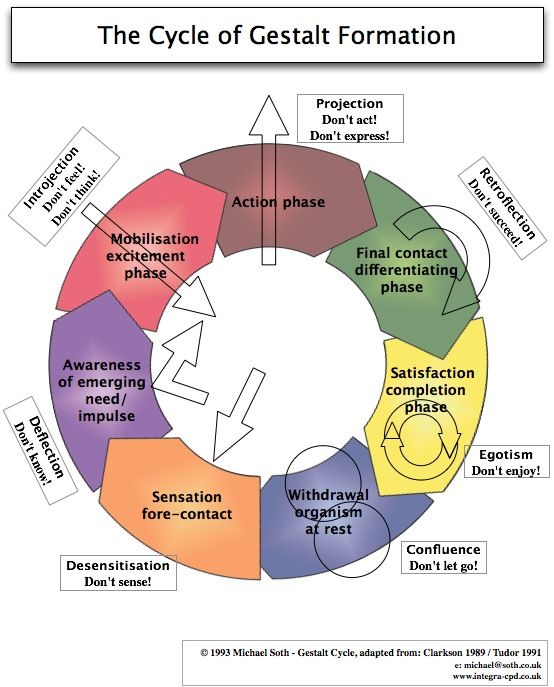
Learn more

